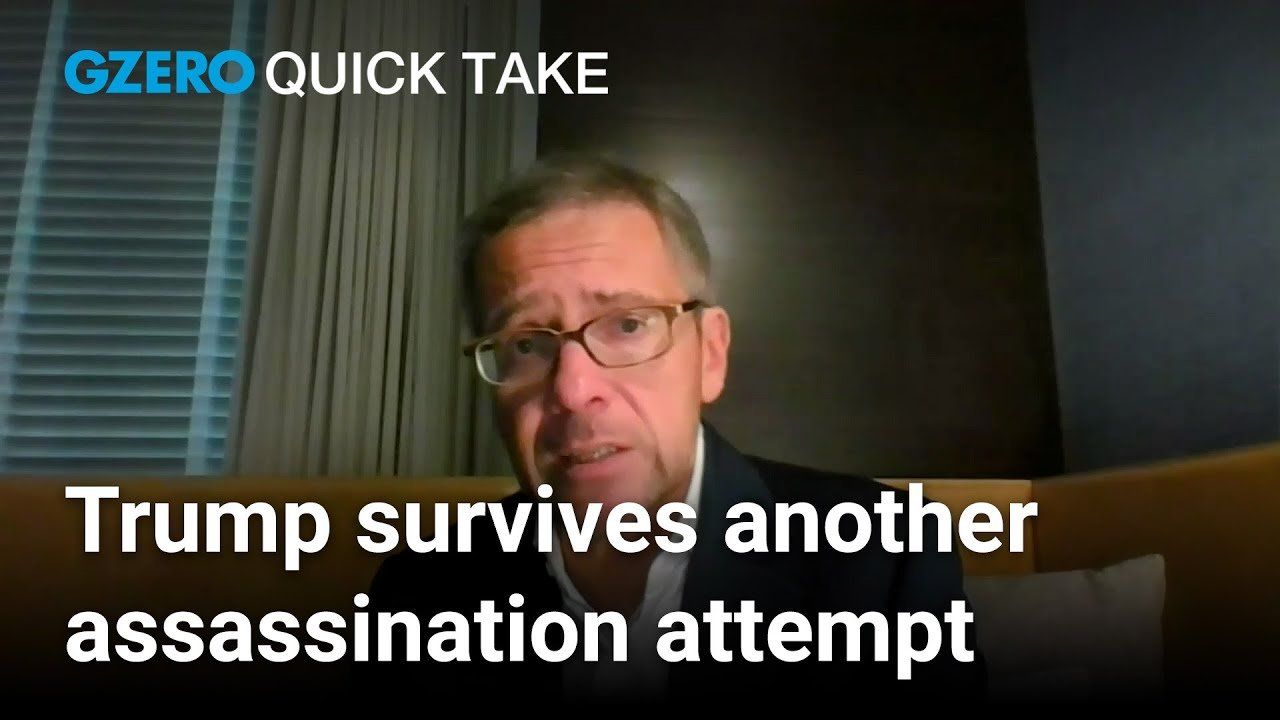
Now, it's not going to have much impact on the election, in part not just because so many unprecedented things get normalized these days in U.S. politics, but also because there's no video that suddenly... The last assassination attempt you had Trump literally escaping with his life less than a fraction of a second, and the blood on him and the rest. Here, the Secret Service did what they should have. They shot at the perpetrator well before Trump was in the sights of this would-be assassin. The U.S. did what it was supposed to, and he's in custody, so one assumes that we're going to learn a lot more about him as a consequence of the interrogations and the rest. Trump can and will fundraise on the back of it, but I'd be very surprised to see any movement in the polls as a consequence or any change in policy, so really not going to move the needle on the election itself.
And yet I think we have to ask ourselves, if Trump had actually been killed, can you imagine how much different the environment today would be? The political environment, the social environment, the violence, the reprisals. This is already considered to be an illegitimate election by a lot of Americans. Many, many Americans believe shouldn't be allowed to run because he's a convicted criminal. He was twice impeached, not convicted, but impeachment is broken as part of the political process. Many of Trump's supporters, a large majority, believe he should be president now, that he won the election in 2020, and that they're going to do everything possible–them, the deep state, the political opposition, the Democrats–to prevent him from becoming President again, to jail him, and even to call for violence against him. And that means that if we did have Trump assassinated, I think it would be much worse than January 6th in the U.S. It would be much worse, more saliently perhaps, than January 8th in Brazil, where you would have George Floyd-style riots, but larger and also much better armed.
A lot of people, including militias, but even Trump supporters in police forces in low-level positions in the military and National Guard that engage in protests that could easily become very violent, certainly in red states across the country. And I think that because it hasn't happened, even though it's been very close, we're not talking about it, we're not thinking about it. But the lack of resilience, the vulnerability, the frailty of U.S. political stability in this environment, I think is remarkable and deserves more focus, more attention because it would prioritize the steps that Americans need to take and political leaders need to take to rebuild that resilience, rebuild that trust, which is nowhere on the political agenda right now. I have to say, we have to give Trump and the GOP credit in the sense that they oppose all gun restrictions as a matter of policy, and that hasn't in any way changed even after both of these assassination attempts of Americans that are unhinged, that have access to these powerful weapons.
And that doesn't happen in other countries. That is a huge difference between the U.S. There's vastly more gun violence in America, not because there's so much more mental health issues, not because there's so much more economic inequality, but because there's so much less restrictions on assault-type weapons, on military-type weapons. The United States has more guns per capita than any country in the world except for Yemen, and Yemen is in the middle of a civil war. The United States is not, and yet there is no feasible capacity politically in the near term to do anything about that. No political will. Very relieved that this series of headlines does not include an actual assassination. Very relieved that former President Trump has survived this. Deeply concerned that it continues to happen. And of course, everything about U.S. politics promises you that you're going to see a lot more of it.
That's the state of play today and this election, and in the broader context that we talk about. So I hope everyone's well, and I'll talk to you all real soon.
- After Trump attack, will the US unite? ›
- Trump, Reagan, Roosevelt: Does surviving an assassin’s bullet help at the polls? ›
- Breaking news: Trump shot in apparent assassination attempt ›
- Trump safe after possible assassination attempt ›
- Iran official denies Donald Trump assassination threats - GZERO Media ›